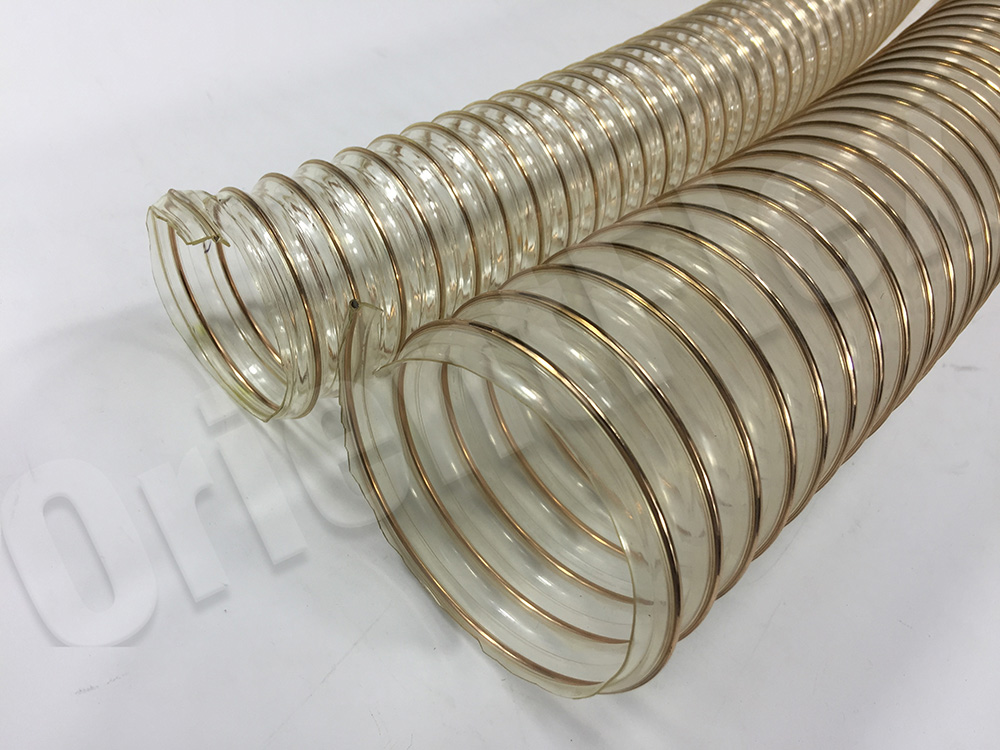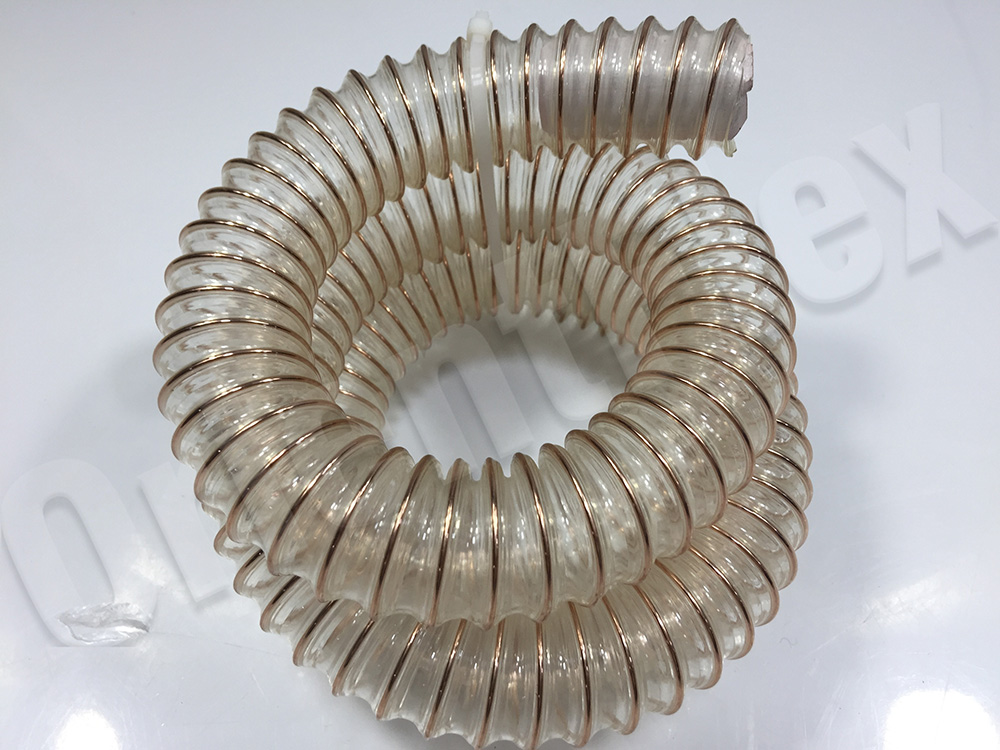Material handling
During the injection molding machine working, raw materials need to be transported to the mold through duct hoses. At this time, the appropriate hose material should be selected based on the nature of the raw materials and production process. For example, for flammable and explosive materials, you should use antistatic and flame retardant plastic hose. While for high temp and high pressure materials, metal hose will be better.

Melt metering
In the injection molding machine, the melt metering pump is one of the key components. Melt metering pumps need to use hoses with good pressure resistance and stability to ensure stable flow of the melt during transportation. At this time, plastic hoses or metal hoses with higher pressure resistance can be used.
Hydraulic transmission
The hydraulic system of the injection molding machine requires hydraulic oil to be driven. Hydraulic oil is susceptible to contamination and leakage during transmission. Therefore, a rubber or plastic hose with good contamination resistance and sealing properties is crucial.

Sensor connection
During the operation of the injection molding machine, various sensor signals need to be collected to achieve automated control. At this time, hoses with excellent signal transmission performance and anti-interference ability should be selected. For example, for the transmission of electronic sensor signals, metal hoses with anti-interference properties can be used.
The industrial hoses used in injection molding machines need to be made of appropriate materials and types according to the production process and equipment requirements to improve production efficiency, product quality and reduce costs. This article explains the diversity and pertinence of industrial hoses in materials and application scenarios, and emphasizes the importance of optimizing industrial hose selection.